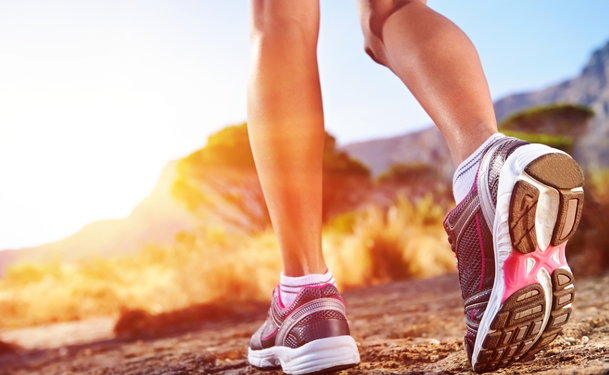Spider veins and varicose veins can be unsightly, painful, and may be a sign of other health conditions. Learn how to prevent vein problems, maintain your vein health, and how your veins can be treated.
Top 10 vein health tips and facts
1. Be active
You can keep your veins healthy by being active. Walking and cycling are particularly good exercises if you have spider veins or varicose veins. These exercises work your calf muscles and boost your leg circulation which reduces the pressure in your veins.
2. Wear compression garments
Wearing compression hose or socks can reduce pain and swelling from poor blood circulation. They also help prevent your veins from getting worse. You can get light compression garments at your local drugstore, or prescription strength ones from you doctor.
3. Get your veins treated
There are now minimally invasive vein treatments that are almost painless and have no down-time. Sclerotherapy is a popular treatment for smaller varicose and spider veins, and endovenous ablation can shrink and dissolve your larger varicose veins.
4. Maintain a healthy weight
Maintaining a healthy weight is one of the best ways to improve your vein health. Being overweight puts extra pressure on your circulatory system, which can increase your blood pressure, or cause your blood to pool in your veins and stretch them out.
5. Get up and stretch
Avoid sitting or standing for long periods of time. Get up and stretch or take a short walk every so often to relieve the pressure on your veins and get your blood pumping again.
6. Eat healthy
Eating a healthy diet that includes foods rich in natural antioxidants helps your body maintain good cellular health which can directly affect the integrity of our tissues. Examples of foods rich in antioxidants include wild blueberries, goji berries, dark chocolate, and pecans.
7. Watch for symptoms
The key symptoms of vein disease that you should watch for are leg pain or discomfort, swelling, tired or heavy legs, skin discoloration or scarring, and restless legs or night cramps. Let your doctor know if you have any of these signs of vein disease.
8. It's OK to cross your legs
Crossing your legs does not cause varicose veins. This is actually a myth. The veins that send your blood from your legs to your heart are actually deep in your muscles, and crossing your legs doesn’t affect these veins.
9. Avoid high heel shoes
High heels, however, can impact your leg circulation because they affect how your calf muscles flex while you walk. Your calf muscles help pump blood from your legs to your heart.
10. Know your risk factors
You’re more likely to develop varicose veins if you’re a woman or you have a family history of varicose veins. Heredity and female hormones have a significant impact on your vein health.


